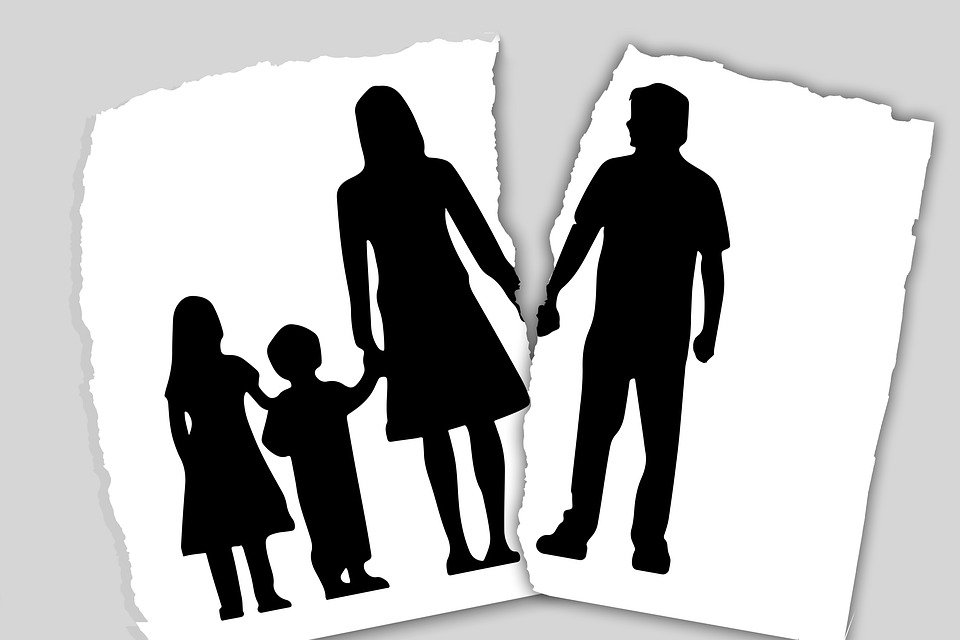Talking to your kids about divorce isn’t easy. Getting a divorce can be a turbulent, emotionally fraught, stressful process to begin with; discussing it with your kids can seem like an impossible task. You don’t have to navigate the conversation alone. While every child is different and no two situations are the same, this post will provide you with guidance – advice on things that can help your child better understand you, and things that can help you better understand your child.
 Plan Ahead
Plan Ahead
Involving your children in the divorce process before you have most of the details ironed out is ill-advised. Divorce leads to dramatic changes in a child’s living situation and this tends to lead to children feeling a loss of control. Consistency is important for child development; when children know what to expect, they feel comfortable growing, changing, and learning. This means that you should only tell your child about the divorce when you’re certain it’s happening. If possible, tell them a few weeks before the actual split. You’ll want to give them some details about what will stay the same and what will change, though how detailed you’ll get will depend somewhat on the age of your child. Though it may be difficult, you should collaborate with your co-parent in the planning process. Planning also gives you the time to ready yourself emotionally for the conversation. Kids will often remember the moment they found out their parents were getting a divorce for a long time so it’s good to be as prepared as possible. Try to have the conversation at the start of a weekend when there isn’t a lot going on to give your child the time to process.
Have the Conversation Together
While it may be difficult to do, it’s important that you and your co-parent are both present when you talk to your children about your divorce. Depending on the age of your child, there might be a tendency to assign blame or to feel that loving one parent is a betrayal of another. Having the conversation together shows a united front – it also shows that you’ll still be willing to work together as parents after the divorce and that you’ll both be there for your children even though you’re divorcing. Children need to know that their parents can still provide stability for them. The conversation should be framed in “we” terms and you shouldn’t assign blame to one party (even though you might feel that one party is to blame). You should have the conversation with the whole family. Don’t tell older children before younger children as they may feel the burden of having to keep a secret.
 Keep Age in Mind
Keep Age in Mind
No two children have the same reaction to learning their parents are getting divorced. Depending on the age of your child, however, you might be able to make some predictions as to how they will react. Depending on your child’s cognitive stage, they’ll have different concerns about the divorce.
For babies, it’s basically impossible to talk about divorce but you should be on the lookout for signs of emotional distress. For toddlers, divorce is next to impossible to understand – it’s complex and multifaceted when they’re only beginning to understand cause and effect. For kids this age, it’s most important to establish a sense of order and security. They need to know that the divorce is an adult decision or they might worry that their parent left them. Lots of reassurance that you still love them, you’ll still be there for them, and that the decision wasn’t because of them is the key.
Children between 6 and 11 are less egocentric so they’ll understand that they might not be the cause of the divorce, though depending on their age, knowledge, and emotional maturity, they may believe they bear a part of the responsibility and may wonder if changing their behaviour could change their circumstances. Again, they need to be reassured that the decision to get a divorce was not because of them and that changing their behaviour won’t affect your decision. They may also be prone to assigning blame to one parent – that’s one of the reasons it’s so important to present a united front. Feeling like loving one parent is a betrayal of another parent can be very toxic.
Children over the age of 11 have highly developed abstract reasoning and deeper emotional intelligence. This can lead to parents wanting to use the child as a confidante or support. Avoid overburdening children of this age with your problems lest they feel like they have divided loyalties.
No matter how old your kids are, they’ll want a measure of consistency. They need to know where they’ll live, who will cook for them, who will take them to doctors’ appointments, dental appointments, eye exams, and school. Make sure you convey to them that their lives will stay structured and that everything possible will be done to keep them comfortable in both homes including redecorating rooms.
 Signs to Watch Out For
Signs to Watch Out For
Divorce is emotional and emotional reactions can be incredibly subtle and varied. Watch for trouble sleeping, emotional outbursts, sudden changes in grades, irritability, anger, headaches, stress, and other physical and mental changes. Don’t be afraid to talk to your child. Rather than saying “Are you feeling angry?” you might approach the conversation more abstractly saying something like “a lot of kids can feel pretty emotional after they hear their parents are getting a divorce”. Respect what you know about your child, don’t press the issue if you don’t need to, and always be there to listen.
Dialogue about mental health is improving at a rapid rate. You might be able to approach adolescent children more directly about their state of mind, and ask them if they’d be interested in talking to a professional about their problems. This is an especially helpful lifeline during divorce, when children may feel conflicted about talking to their parents. Resources like KIDTHINK provide access to mental health clinicians who can provide an unbiased, constructive approach to mental health issues.



















